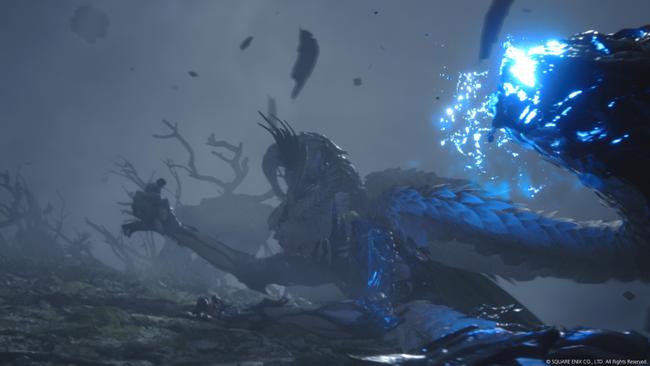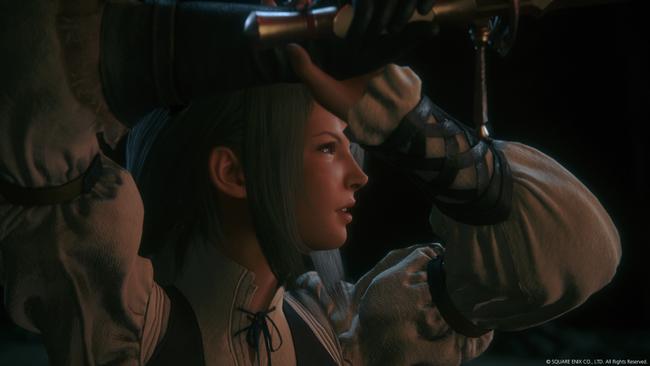
Naoki Yoshida explains why there's less broad representation in Final Fantasy XVI: "The story we are telling is fantasy, but it is also rooted in reality"
As far as Japanese RPGs go, the Final Fantasy series has more of a history of featuring prominent characters from a diverse range of backgrounds than most. For a while now, fans have been asking if Final Fantasy XVI will continue that tradition - and in a new interview, FF16 producer Naoki Yoshida has given a clear answer.
Speaking to IGN alongside several other members of the FF16 development team, Yoshida explained that FF16 might not have as much diversity as some other titles in the series. Yoshida admits, right away, that his answer "may end up being disappointing to some," noting that diversity in entertainment has been the subject of much discussion in recent years.
"Our design concept from the earliest stages of development has always heavily featured medieval Europe, incorporating historical, cultural, political, and anthropological standards that were prevalent at the time. When deciding on a setting that was best suited to the story we wanted to tell—the story of a land beset by the Blight—we felt that rather than create something on a global scale, it was necessary to limit the scope it to a single landmass — one geographically and culturally isolated from the rest of the world in an age without airplanes, television, or telephones," Yoshida notes.
"Due to the underlying geographical, technological, and geopolitical constraints of this setting, Valisthea was never going to realistically be as diverse as say a modern-day Earth...or even FF14 that has an entire planet (and moon) worth of nations, races, and cultures at its disposal. The isolated nature of this realm, however, does end up playing a large part in the story and is one of the reasons Valisthea’s fate is tied to the rest of the world."

Yoshida's response to this question has already triggered hot debate on social media and message boards, with this statement mirroring debate around things like Amazon's recent dubious quality Lord of the Rings TV series - which went the opposite direction by casting a wider variety of people than typically seen in fantasy. FF16's medieval setting could've gone either way - but it seems that for this title, the team is making the argument of a geographical authenticity to its inspirations - even if it's also a game with giant kaiju battles and magic.
As you'd imagine, this statement has drawn a wide variety of responses. Some are praising this decision as authenticity to FF16's clear inspirations, many of which have casts of a similar ethnic make-up to FF16. Others are criticizing the game for using historical accuracy as a reasoning for this while the title simultaneously features wildly historically inaccurate armor and weapons - without getting into the raw fantasy elements. Some have pointedly noted that the word fantasy is right there in the name - arguing that the ethnic make-up of the land of Valisthea could've been whatever the development team wanted, real-life be damned. Others argue that a Japanese-developed game should not be exposed to debates that are largely Westcentric in general.
It's undoubtedly a very different conversation than when this same discussion took place around Kingdom Come Deliverance, a much more dour and grounded medieval title. Even in that case, however, people began to note that medieval europe was more ethnically diverse than many realize - something storied RPG developer Josh Sawyer has exploited for Pentiment, his upcoming story-focused RPG set in the 16th century, which features the usual cast of familair medieval tropes but also characters from as far afield as Ethiopia.
"Ultimately, we felt that while incorporating ethnic diversity into Valisthea was important, an over-incorporation into this single corner of a much larger world could end up causing a violation of those narrative boundaries we originally set for ourselves," Yoshida explains.
"The story we are telling is fantasy, yes, but it is also rooted in reality."

Elsewhere in IGN's wide-ranging interview, FF16 translation lead and story steward Michael-Christopher Koji Fox touched on how the game will handle female representation - an area where the Final Fantasy series has typically done very well. In a similar vein, the female representation might not be entirely similar to other FF titles - but the decisions made have been taken in service of FF16's intended narrative.
"While [FF16] does feature a prominent female protagonist, I would hazard the similarities end there," Koji Fox says, talking of any similarities between FF16's female heroes and those from the series' past such as Aerith (FF7) or Celes (FF6).
"Celes and Aerith are unique in that so much of their games’ narratives revolve around their own respective stories. [FF16's] story, however, has, since the early concept phase, always been about Clive. But as is the case with all Final Fantasys, Clive’s story is about encounters. It is about companions. It is about relationships and how, through those relationships, Clive grows. No Final Fantasy character worth his or her salt ever saved the world on their own. Luckily, Clive won’t have to try, as he, too, is not alone.
"These companions, however, are not simply static, one-dimensional plot devices there to prop up Clive. They have their own pasts, their own motivations, and these are explored in-depth as the player progresses through the story. One such character does end up being featured more prominently. Strong, yet flawed. Brave, yet full of doubt, her relationship with Clive affects him in ways that reverberate throughout his arc."
Final Fantasy XVI is due out next summer - but we should get a full release date before the end of this year. If you want to be prepared, we can help - we've got primers on all the FF16 characters revealed so far, a combat mechanics deep-dive, and profiles on the two key figures shaping the game - creative lead Kazutoyo Maehiro and director Hiroshi Takai. That'll keep you busy.